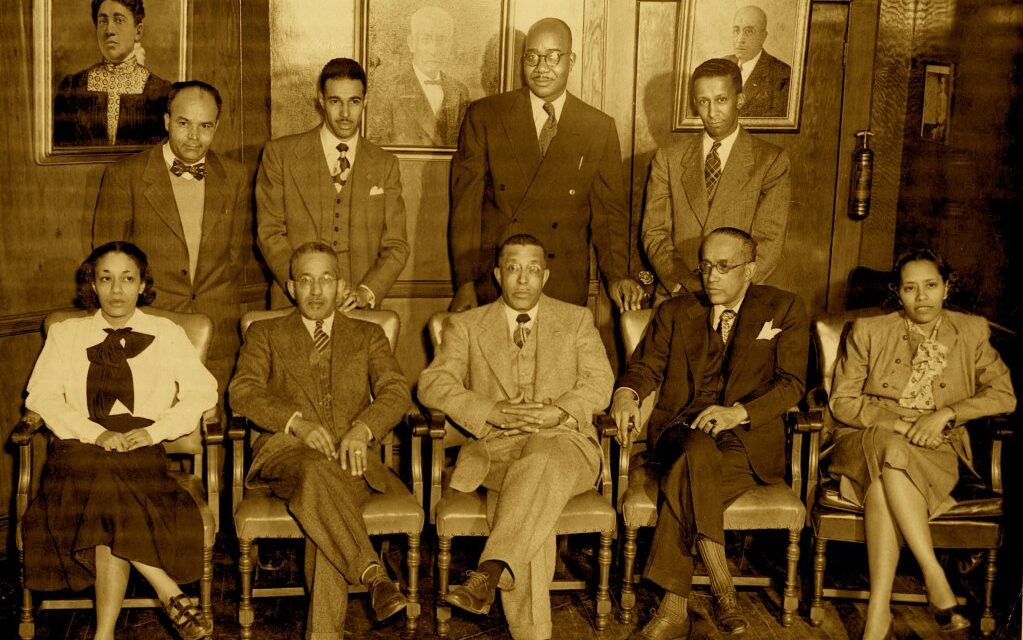
By B. M. Phillips IV
AFRO President
August 13 marks 132 consecutive years of publishing for the AFRO-American Newspapers, founded by John H. Murphy Sr. in 1892.
Determined to succeed, at the age of 51, Murphy, a father of 11, borrowed $200 from his wife, Martha Howard Murphy. With their children’s support, a historical journey began that continues today with fourth, fifth and sixth-generation family members.
Just one month before striking into the publishing business, Murphy’s youngest son, David Arnett Murphy, also known as “D. Arnett,” who was born. On July 9, 1892, his birth completed what would become the second-generation owners of the AFRO. Collectively, they set the standard of commitment, ensuring the company’s success and the pursuit of fairness and equality for Black Americans. They also supported other like-minded publishers.
When the founder died in 1922, his children embarked on an expansion that saw the company spread their offices north and south, growing to 13 editions. The AFRO became one of the largest Black publications in circulation, with over 200 employees —many of whom were unionized. Its printing press ran every day of the week except Sundays.
The company dispatched seven correspondents (including the first Black woman) to the Atlantic and Pacific theaters during World War II to report the news. Their accounts are documented in the book “This is Our War,” which was released in a special reprint last year to mark the 75th anniversary of the desegregation of the United States Armed Forces.
Dr. Frances Murphy Draper, CEO and publisher, states in the foreword of the book that “Today, as lawmakers across the United States attempt to minimize and rewrite Black history, it becomes even more important for us to document and share our own stories.
‘This is Our War’ does just that by highlighting the triumphs and challenges Black soldiers faced. In their own words, AFRO journalists provided intimate details, including names and addresses of servicemen they encountered. In some cases, messages to loved ones at home were included.”
The paper has always been on the front line, battling racial inequality and afflictions threatening our readers. Shining a light and advocating for better conditions required that the company be financially independent to ensure its message could not be tainted or silenced. It became apparent that advertising revenue was critical to funding these efforts, and the addition of a sales team allowed the AFRO to augment circulation dollars and achieve its goals.
D. Arnett Murphy’s accomplishments are particularly noteworthy in these efforts. He began his career with the newspaper at the age of 13. He worked for the company for 66 years.
His early roles included bookkeeper, pressman, linotype operator, makeup man and reporter. At one point, he ran a sports event called AFRO Marathon, but ultimately, he discovered that advertising was his specialty.
As director and vice president of advertising, his team fueled revenue growth during his tenure. In support of AFRO offices throughout the eastern seaboard, he invested in his teams by holding sales meetings and conferences to share initiatives and train current and new employees to be successful.
By partnering with similar publications across the country, a stronger pitch could be made to increase revenue. In 1940, D. Arnette Murphy was elected vice president of the Eastern District during the initial formation of what is now the National Newspaper Publishers Association (NNPA). Today, NNPA represents more than 200 Black-owned newspapers, both in print and digital formats.
In 1944, he organized and served as president of the Associated Publishers, a national advertising agency representing 35 other weekly newspapers at the time.
A key figure in the company’s management, D. Arnette Murphy was also a stockholder, voting trustee and a member of the board of directors until his death in 1972. He retired from day-to-day operations in 1963.
As reported by his niece Elizabeth “Bettye” Moss, he was Dubbed “Chief,” “Mr. Arnett”or simple “D.A” by associates and friends. He was an avid reader and an interesting conversationalist, known for his love and concern for people.
His impact extended beyond his dedication to the company, and he was proud of his role in integrating Baltimore City’s public golf courses. Along with other members of the Monumental Golf Club and the Citizens’ Civil Rights Committee, the AFRO executive responded swiftly to being denied entry to one of the public courses and helped finance the court suit that opened the public links to all in 1948.
D. Arnette Murphy was a life member of the NAACP and served on the board of Advance Federal Savings and Loan whose mission was to help African Americans secure loans and build their credit.
Like his younger brother Carl J. Murphy, D. Arnett Murphy didn’t have any sons. He and his wife Sadie Clark Murphy had three daughters Mae E Dyson, Virginia Murphy and Arnetta Lottier who followed in the footsteps of his generation working at the paper and lending their talents as members of the Board of Directors.
As noted in the article announcing his death, he had a great love for Grace Presbyterian, where he served many years as trustee and had been a member for 50 years.
So, as we blow out the candles for another year, let’s not forget those who got us here— people like, D. Arnett Murphy, the youngest member of my great-grandfather’s sons and daughters.
B.M. Phillips IV is the current president of the AFRO and is great-grandson of the founder, John Henry Murphy Sr.
The post AFRO-American Newspapers marks 132 years of publishing appeared first on AFRO American Newspapers.












